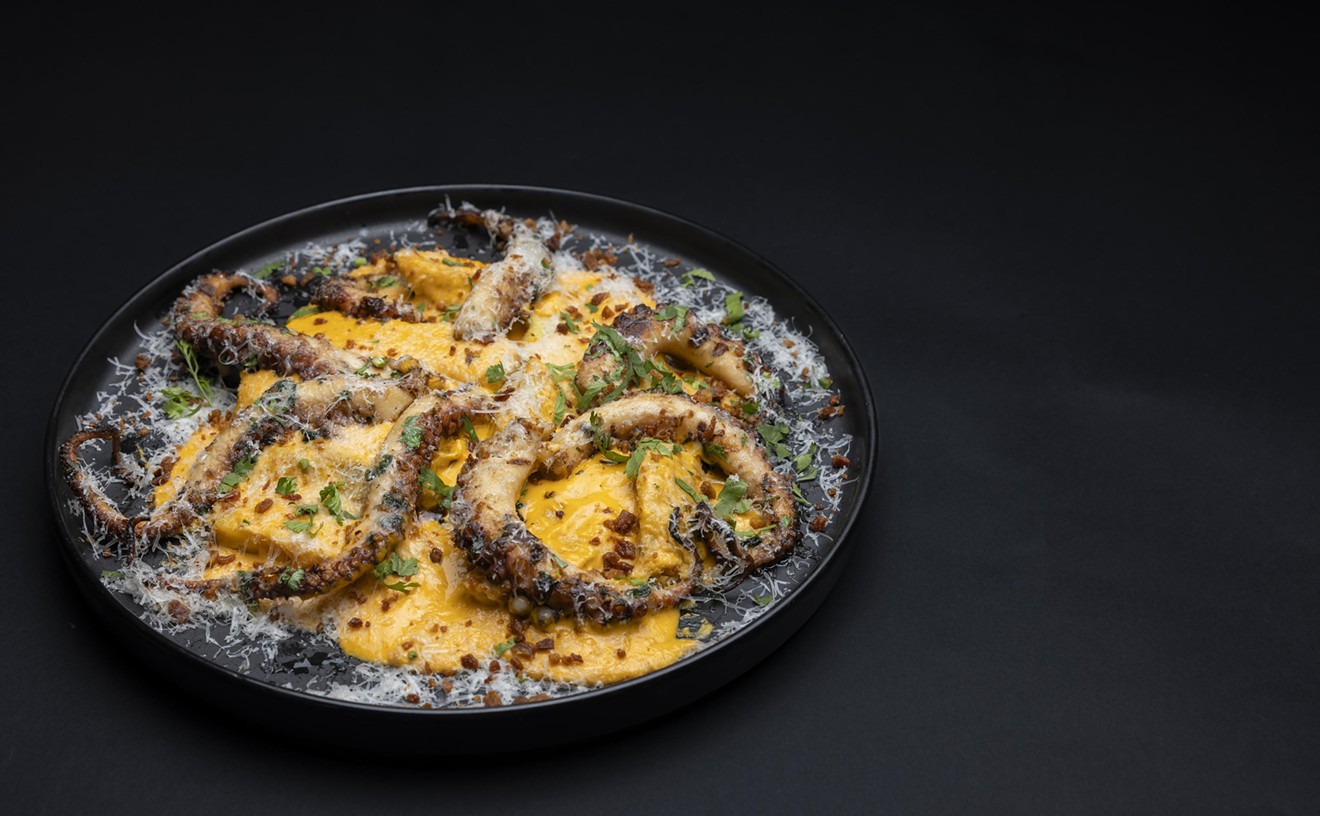Aliens, apparently. That is, if you take your social satire seriously.
Author Michel Faber does. In his new novel, Under the Skin, he treats the subject of who eats what -- or more to the point, who eats whom -- with terrifying sincerity. At the end of the book, which is neither science fiction nor magic realism but rather intelligently written, neopolitical literature along the lines of Animal Farm, we are left with deepening empathy for both the unlikely protagonist Isserley and the animals we breed and eat.
That's right, empathy. Not sympathy. Because Faber skillfully writes us so-called human beings into the story as delicacies to be captured and fattened for an alien society, we wind up identifying with rather than just feeling sorry for the cattle and poultry we raise for our own consumption.
Of course it is not quite clear at the beginning that Isserley is an alien, sent to modern-day Scotland to hunt hitchhikers. She is never referred to as such; indeed she and others of her race call one another human beings. In her language, of which we learn only a few well-chosen words, earthlings are called vodsels, and the luxury items wrought from our flesh are voddissin. Replace vodsel with cow, and voddissin with filet mignon, and you begin to see where Faber is headed.
Nor do we ever discover where Isserley comes from, as only vague references to "home" are made throughout the story, and obvious science-fiction angles (descriptions of strange weaponry, exhibition of spaceships, et cetera) are deliberately kept to a minimum. Only her appearance, slowly revealed layer by layer, clues us in at first to the fact that Isserley is not all she seems.
In the beginning we are misled to believe that Isserley is a sexual predator, cruising the A9 roadway in a creaky red Toyota that we are informed a little bit later has "customized bits." Those bits, we wrongly assume, are for the purpose of something akin to serial date rape, or just plain kidnap and rape. "She could have some magnificent brute sitting in her car, right next to her, knowing for sure that he was coming home with her, and she could already be thinking ahead to the next one. Even while she was admiring him, following the curves of his brawny shoulders or the swell of his chest under his T-shirt, savoring the thought of how superb he'd be once he was naked, she would keep an eye on the roadside, just in case an even better prospect was beckoning to her out there."
Faber continues with the doublespeak for a while by allowing Isserley to pick up her first hitcher, whereupon she speculates that "the bulge in his jeans was promising, although most of it was probably testicles." She also "must avoid the humiliation of committing herself, of allowing herself to believe he would be coming with her, and then finding out he had a wife or a girlfriend waiting." The author even indulges in a bit of wordplay that we only understand on the second reading: "Isserley wondered, oh how she wondered, what she looked like to him, in his alien innocence. Did he notice the trouble she had gone to for him? She straightened her back against the seat, pushing her chest out. The hitcher noticed all right."
At this shift in point of view, from Isserley to the hitcher, we first become aware that something about Isserley's appearance is not quite right. Abnormally large-breasted, Isserley is described by the hitcher as incredibly short, with "long skinny arms with big knobbly elbows.... Knobbly wrists too, and big hands.... They were odd, actually, those hands. Bigger than you think they'd be, to look at the rest of her, but narrow too, like ... chicken feet."
Other hitchers continue to describe Isserley from their perspectives, through which we learn that her eyes are owl-round; her hair is fluffy and mouse-brown; her nose appears surgically rendered. And in fact her parts have been constructed by surgeons, who have transformed Isserley from her native state into something resembling an earthling -- quite a feat given that Isserley's natural body habitus is four-legged, fur-covered, and prehensile-tailed, and she has a snout rather than a nose and mouth. We receive the most concise description when Amlis, a colleague who would be the equivalent of a vegan in our society, questions Isserley about a herd of sheep. "“Have you ever tried using them for meat?' he asks.
"Isserley was dumbfounded. “Are you serious?'
"“How do I know what you people have got up to?'
"Isserley blinked repeatedly, fumbling for something to say. How could he even think of such a thing?
"“They're ... they're on all fours, Amlis, can't you see that? They've got fur -- tails -- facial features not that different from ours....'
"“Listen,' he began testily, “if you're going to eat the flesh of a living creature....'"
This exchange is the moment when the parable becomes apparent, though long before we are keyed in to the knowledge that Isserley assesses and kidnaps hitchers for the express purpose of turning them into steaks. The "customized bits" in the car are actually needles containing a drug; she stings her victims, and brings them back to a farm where she is assisted by assorted aliens. The unconscious hitchers are then "gelded," and their tongues are removed. Left naked and called "transitionals," they are "squatt[ing] torpidly, each on his own little patch of straw... some chewing warily on their unfamiliar new feed, others scratching at hair that was growing sparse and mossy, others clenching their fists in their castrated laps. Though still vaguely differentiated in physique and coloring, they saw their own future constantly before them. They were slowly maturing towards their destiny, towards a natural mean."
Sound familiar? In short the hitchers are dehumanized, turned into the animals that Isserley and her ilk consider them to be: deprived of language, of the veneer of civilization, of self-determination. After a short time in the cages, where they are fattened, the hitchers are called "monthlings" and become "a mound of fast-panting flesh, the divisions between one musclebound body and the next difficult to distinguish, the limbs confused. Hands and feet spasmed at random....Their fat little heads were identical, swaying in a cluster like polyps of an anemone, blinking stupidly in the sudden light. You would never guess they'd have the cunning to run if released."
Faber's powers of description certainly make you think twice about eating the force-fed livers of ducks and geese, or snails overstuffed on cornmeal, or chickens locked in cages and pumped full of feed. Of course the true miracle of his prose is that he not only alludes so powerfully to our own food chain without the banal contempt of a PETA member throwing fake blood on a fur coat, he turns Isserley into a likable character. For she, having been altered into a being that is neither, in her eyes, human nor animal, finally does begin to identify with her victims. When she whispers "I'm sorry" to the last hitcher that she stings, we believe her.
We also understand that given the mutilation of her body, she lives in constant pain, both emotional and physical. And when Amlis claims he has "confirmed [his] worst fears.... This whole trade is based on terrible cruelty," we agree with Isserley when she replies that he doesn't "know what cruelty is," that he is incredibly lucky to have a "worst fear that concerned the welfare of exotic animals rather than any horrors he himself might have to face in the struggle for survival." In other words we become so well acquainted with Isserley and the circumstances that have led her to her current state that we also forgive her.
What we never really discover is why these particular aliens consider earthling flesh such a luxury item. We just have to take it for granted that they do, the way the wealthy in our world savor the roe of sturgeon. As a comment on society, Under the Skin gets under ours the way slivers of bamboo might be received by fingernails: with great discomfort and not a little amount of revulsion.









